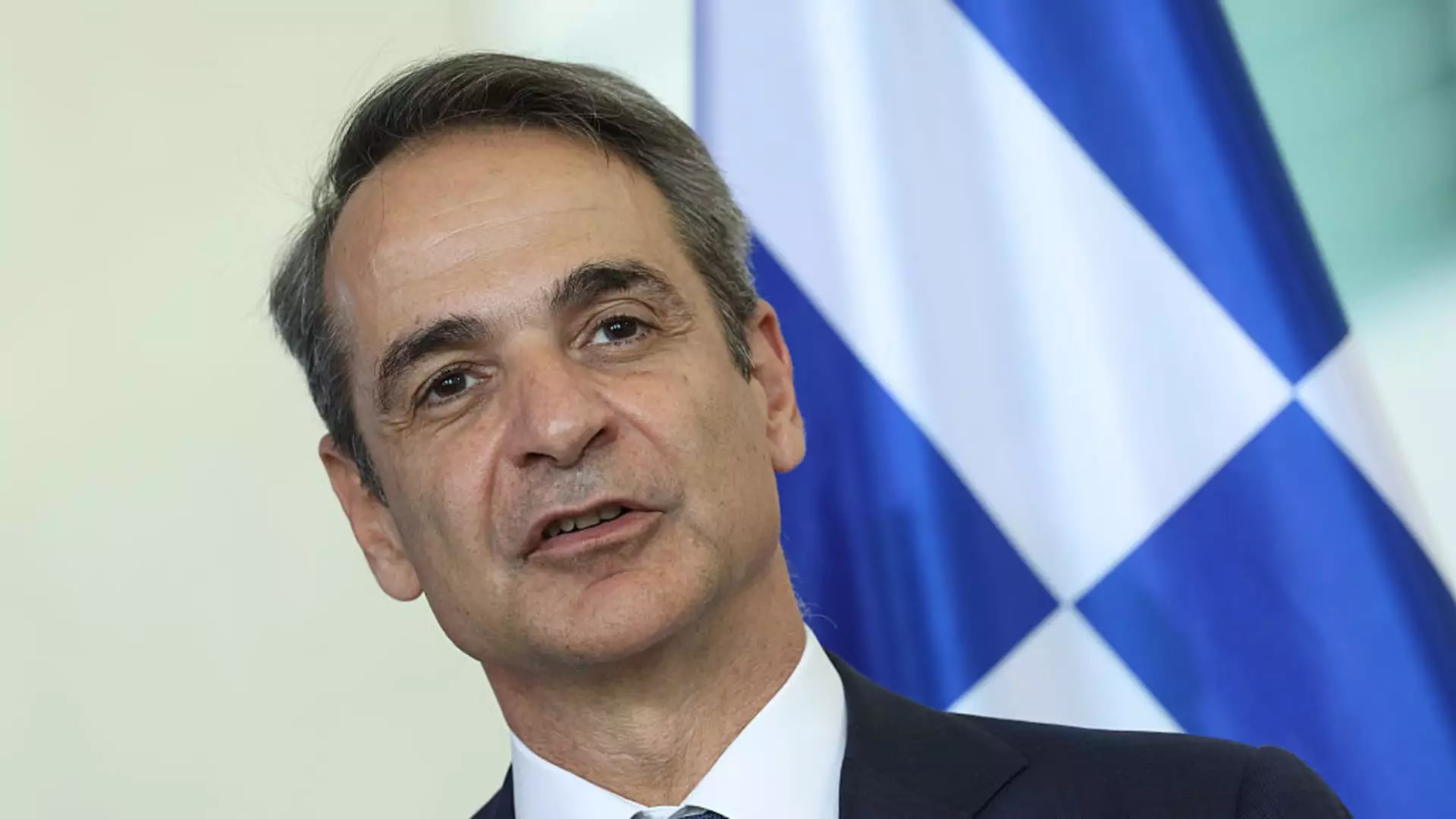In a world characterized by political upheaval and evolving security threats, the reliance on military alliances such as NATO has never been more pronounced. However, as U.S. President Donald Trump’s staunch demands for increased NATO defense spending resonate across the Atlantic, skepticism looms large. Prime Minister Kyriakos Mitsotakis of Greece recently articulated the strain these demands place on member countries, questioning the feasibility of raising defense expenditures to a staggering 5% of GDP. This argument is not merely a bureaucratic concern; it embodies the evolving nature of national security in a multipolar world.
Mitsotakis’s assertion that 5% is “very, very difficult” underscores a critical reality facing NATO allies. While the alliance has historically strived toward a 2% GDP defense spending guideline, only a few nations have successfully navigated the fiscal and political landscapes to meet even this modest benchmark. Most member countries, including established powers like Germany and France, grapple with substantial internal challenges that impede their ability to ramp up military budgets. This slow progress raises critical questions about the sustainability and cohesion of NATO at a time when unity is paramount.
The Mirage of Increased Defense Spending
The conversations surrounding defense spending often morph into rhetoric devoid of practical implications. While former President Trump’s insistence on enhanced military funding serves to galvanize support among certain factions, it fails to acknowledge the multifaceted obligations that nations must balance. Greece, spending around 3.1% of GDP on defense, finds itself navigating not only fiscal imperatives but also geopolitical tensions primarily emanating from Turkey. These realities must inform any extended commitments to increased defense expenditure.
NATO’s Chief Mark Rutte suggested a compromise of 3.5% dedicated strictly to defense but acknowledged the need for another 1.5% towards wider security initiatives. This nuanced proposal reflects a recognition that security encompasses far more than just military might—it extends to bolstering infrastructure, intelligence-sharing, and cybersecurity. The fragmentation within NATO regarding spending strategies demonstrates an urgent need to rethink what constitutes a comprehensive defense posture in the 21st century, especially considering the diverse capabilities and threats faced by member states.
The Dangerous Implications of Failing to Adapt
Stagnation in defense spending overlooks significant issues affecting member nations, particularly in terms of fiscal responsibility and domestic priorities. Economic realities dictate that countries like Greece cannot sustain inflated military budgets without compromising vital social services and developmental initiatives. Mitsotakis’s acknowledgment of Greece’s position—exceeding NATO’s baseline due to specific regional threats—serves as both a defense of national priorities and a critique of blanket spending mandates not tailored to regional specifics.
Moreover, as political allegiances shift and new global threats emerge, NATO risks becoming an anachronism unless it evolves to respond to current challenges. The insistence on rigid spending targets, while alluring in simplicity, is ultimately detrimental to the alliance’s overarching goal of a secure Europe. Financial constraints will lead to divergent capabilities across member nations, resulting in a military structure that is ill-equipped to address the multifaceted nature of modern conflict.
European Defense: A Call for Genuine Reform
The European Union’s fiscal framework further complicates matters, reinforcing restrictive budgets that stifle nations’ ability to meet enhanced defense requirements. However, recent moves by the European Commission to reconsider these constraints reflect a growing acknowledgment of the need for a more flexible approach to national defense. The imperative for a robust defense strategy must coexist with economic viability; the surge in defense spending should not come at the expense of social stability.
In this light, Mitsotakis’s advocacy for reforms is a clarion call for new operational frameworks that prioritize safety without suffocating economies. Nations must be empowered to make decisions that suit their immediate threats while adhering to broader alliance goals. Striking this delicate balance is crucial if NATO is to uphold its foundational purpose—serving as a bulwark against authoritarianism and an advocate for democratic values across the globe.
As the landscape of global politics evolves, so too must the strategies employed by longstanding alliances like NATO. The conversation around defense spending should not remain a static battleground but rather evolve into a dialogue that embraces collaborative security efforts, smart fiscal policies, and a commitment to a secure, just, and stable world for all member nations.

